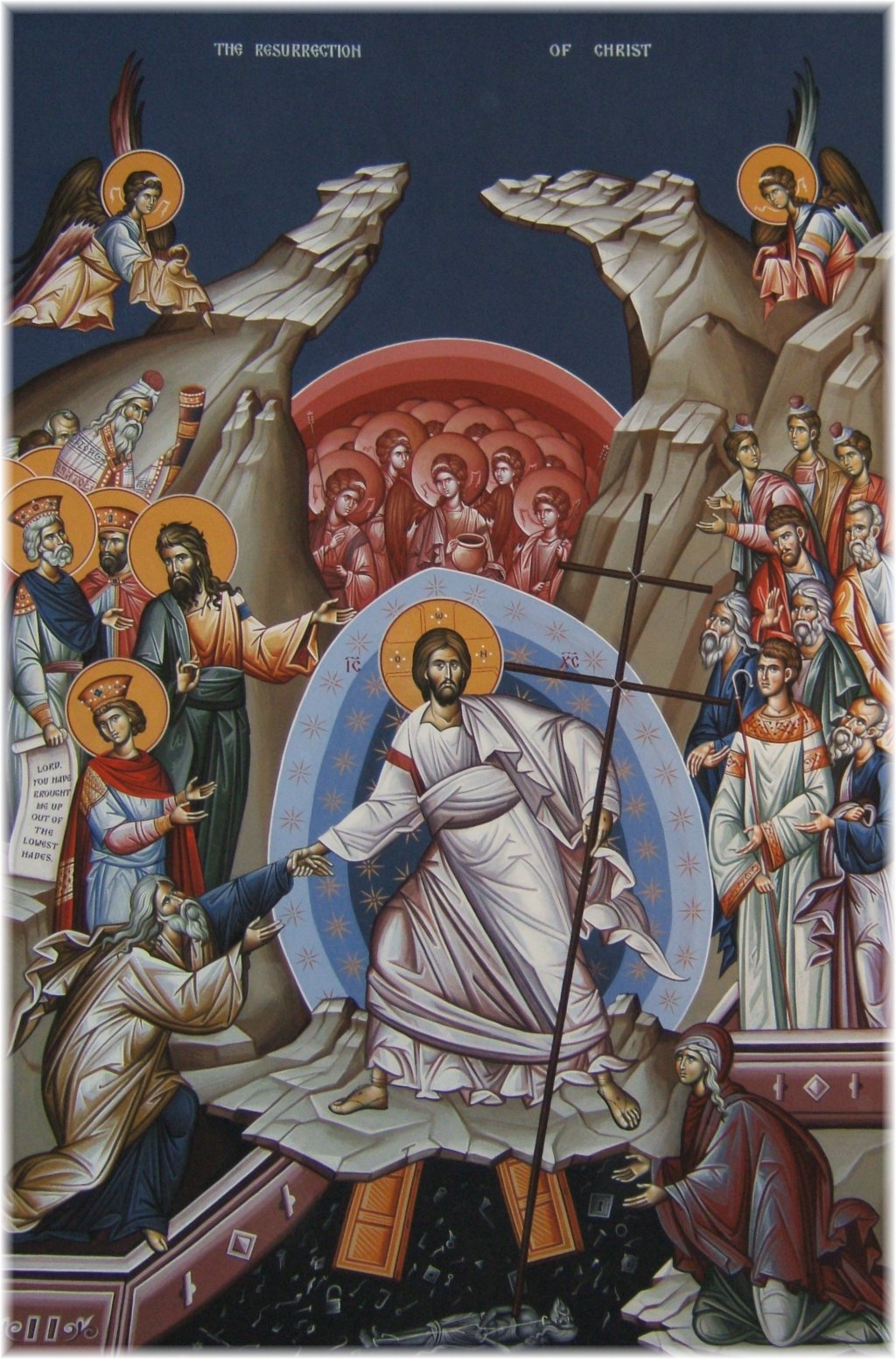The following beginning verses from chapter 20 of St. John's gospel were read during the octave last week at Mass and the Office. I attended the Divine Liturgy for Monday of Bright Week. The pericopes there, the priest explained, already anticipate the mission of the Church and the coming of the Holy Spirit. Indeed, the Byzantine tradition has a unique focus on the Trinity and the Holy Spirit which is not found in the Roman Church. The Roman rite, solidified in its fundamental elements when the fluid Byzantine Church was the battle ground of heresies, glosses over many of the matters concerning the Godhead mentioned in the Greek liturgy. Instead, the Roman liturgy is very Christ-centered, centered on Christ as God and as Man. This Scriptural pericope is quite fitting for the Roman tradition:
"And on the first day of the week, Mary Magdalen cometh early, when it was yet dark, unto the sepulchre; and she saw the stone taken away from the sepulchre. She ran, therefore, and cometh to Simon Peter, and to the other disciple whom Jesus loved, and saith to them: They have taken away the Lord out of the sepulchre, and we know not where they have laid him. Peter therefore went out, and that other disciple, and they came to the sepulchre. And they both ran together, and that other disciple did outrun Peter, and came first to the sepulchre. And when he stooped down, he saw the linen cloths lying; but yet he went not in. Then cometh Simon Peter, following him, and went into the sepulchre, and saw the linen cloths lying, And the napkin that had been about his head, not lying with the linen cloths, but apart, wrapped up into one place. Then that other disciple also went in, who came first to the sepulchre: and he saw, and believed. For as yet they knew not the scripture, that he must rise again from the dead."
At face value, the Evangelist recounts the startling news given to the Apostles that the tomb in which Jesus once laid was now empty and that "they believed." What did they believe? Nothing that we would recognize, at least not yet. Before the descent of the Holy Spirit, the Apostles were faithful and foolish friends, quick to sing the Lord's praises and endear themselves to Him, but not entirely sure why. One thinks of them squabbling over who would have a place of honor in the kingdom of heaven. Even after the Resurrection they seem no better off that before, asking at the Ascension if Christ would finally become the terrestrial and material Messiah for which the Jews longed, one who would free them from Roman oppression and begin a tangible reign of the kingdom of God on earth. When John says "they believed," we are not unfair to ask "What did they believe?"
Living two thousand years later, we enjoy the wisdom of the Fathers, the teachings of the popes, bishops, and their convened councils, as well as the accumulation of centuries of common sense. We know that miracles were outward acts of mercy on the part of Our Lord to point people to His Divinity, to draw people to His teachings and His words. Peter and the rest might have understood the miracles to have shown His favor with God, but not that He was God. Peter's confession of faith was that Jesus was the "Christ, the Son of the living God." None of the brethren understood that He was God made Man or that He must rise from the dead, as the last verse of the Johannine passage reveals.
It would not be unlikely that Peter and the other apostle, likely John, saw the empty tomb, which had been guarded by soldiers from the Sanhedrin's forces, and presumed an assumption of Christ's body into heaven like that of Elijah when he was alive and possibly Moses after his death. Christ may, to them, have been the greatest and most amazing of all the prophets, those witnesses to God. Yet what could Jesus have accomplished as a prophet, a man, who worked miracles, died a gruesome death at the hands of his own people, and was then bodily removed from the earth? They "believed" without understanding what they believed because they could not possibly know without seeing Him and touching Him that He was God and that, unlike the miracles of prophets of old, He rose from the dead without the prayers of another man. Later, He appeared to the Apostles and to Thomas, and there He revealed His divinity most explicitly.
This is the Catholic paradigm of God. God is Who He is ("I am Who I am" is His name in Hebrew) regardless of what we want God to be. We encounter Him and He tells us about Himself if we listen. We can know about God by reason. We cannot know Him intimately without knowing Him as a person though. "The Lord is God and has revealed Himself to us" from Byzantine Mattins always seemed plain to me until I considered that it was an adaptation to refer to the "Lord" God as a master, a personhood Who comes before creatures of far lesser capacity to understand and tells us what we need to know about Him. This is the Incarnation! This is the purpose of the great condescension! Without this great consideration we demote Christ and the faith to an intellectual proposition, not what "faith" is—a word that shares a Latin root with the same word that means "loyalty." Peter had not understanding, but when he saw the empty tomb his loyalty returned and prepared him to meet his master, risen from the dead.

No comments:
Post a Comment